Erasmus Mundus thesis defense in Faro, Portugal
Bill Dennison · | Learning Science | 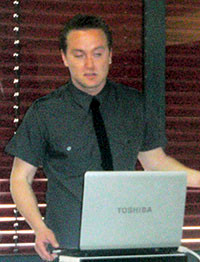
The Erasmus Mundus program, a European Union sponsored educational initiative, has a joint Master's program in Water and Coastal Management. The Master's program includes a lecture based phase, which Tim Carruthers has taught twice; once in Faro, Portugal at the Universidade do Algarve and once at the Universidad de Cadiz, in Cadiz, Spain. Following the lecture phase of the thesis, which is held at different participating universities in Europe, students produce a thesis project. Bill Dennison served as a co-advisor (with Alice Newton) for a Croatian student, Ivan Sekovski. Ivan was sponsored by the Land-Ocean Interactions in the Coastal Zone (LOICZ) for his thesis project and he worked in the LOICZ International Project Office, located near Hamburg, Germany at a government science organization (GKSS). Bill and Ivan communicated by email and had regular skype meetings for the duration of the thesis project. They did not physically meet until the day of Ivan's thesis defense, which was an interesting model for thesis advising.
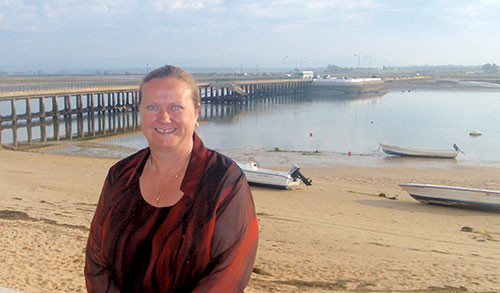
For Ivan's April 12, 2010 thesis defense, Alice, Bill and Ivan traveled to the University of Algarve. The defense style for this university was to have the student present a 20 minute thesis overview to a 'thesis jury', with a jury president from the University of Algarve, a 'main opponent' who served leads the inquisition of the student following the presentation. The other jury members, including the thesis advisor(s) then ask questions. Following the presentation and question session, the student (and audience) troop out of the room while the jury deliberates. Ivan's thesis was titled "Coastal Megacities: Application of the driver-pressure-state-impact-response (DPSIR) framework to address environmental, social and economic issues". Bill Dennison and Alice Newton (a Universidide do Algarve professor currently working at the Norwegian Institute of Air Research in Oslo) served as co-advisors and jury members. Dr. Juergen Weichselgartner, a German geographer at LOICZ, was the main opponent and rest of the jury included Dr. Eva Roth, a Danish economist, and Dr. Tomasz Boski, a marine geologist at the Universidide do Algarve who was the jury president.
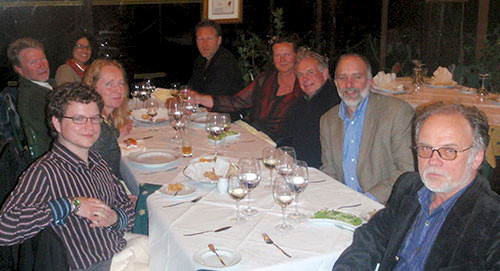
Ivan's thesis focused on issues associated with the current and future coastal megacities of the world. Coastal megacities were defined as having 10+ million people, within 100 km from the coast and within 100 m of elevation from sea level. By this definition, only 2 coastal megacities existed in 1975 (New York and Tokyo), but by 2007 there were 14 and population projections indicate more coastal megacities in the coming years, particularly in Asia. By comparing the environmental issues in current megacities, Ivan concluded that efficient management responses for environmental problems in coastal megacities are a combination of a) governance proposed measures, b) technological improvements, and c) best management practices. The major obstacles in managing coastal megacities are the result of 1) unclear physical and administrative boundaries, 2) poor cooperation between different managing structures and 3) insufficient participation of local communities. The major advantages of coastal megacities in overcoming environmental problems included the following: i) megacity financial capacity, ii) slower increase in population observed in megacities, and iii) increasing environmental awareness. Ivan passed his thesis and received a high distinction and plans on returning to Croatia.
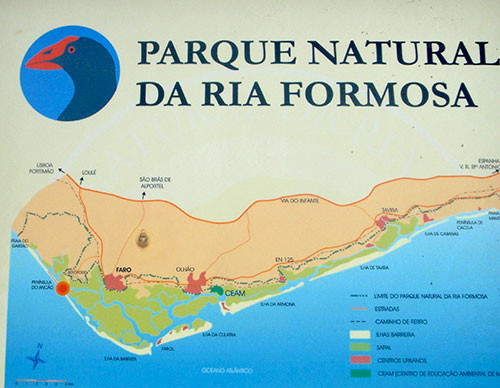
The University of Algarve is located in Faro, Portugal, on the southern most point of Portugal halfway between Cape St. Vincent to the west and the border with Spain to the east. Algarve is a beautiful region of Portugal, which may be the best smelling country in the world, due to the pungent scents of the coastal vegetation. Faro is located on Ria Formosa, a large coastal lagoon formed by a series of barrier sand islands with rapidly migrating inlets. We stayed in a hotel on the barrier island, with the ocean only 50 m away and the inlet lapping at the hotel wall. Ria Formosa has large tides (up to 3 m) and extensive salt marshes, seagrass meadows, and supports an active aquaculture industry (mainly small, tasty clams, but also finfish). Historically, there were large densities of sea horses in the seagrass meadows, but they have recently declined. The seafood was delicious, including octopus, monkfish, clams, squid, and cuttlefish. Winter storms had swept beach sand across the island, and in places, covering the sidewalks and streets. Small beach villas were built into the dunes and there were lots of people visiting the beach, even though the temperatures were in the 60s°F (15-20°C). Both the Faro airport and the town of Faro were visible on the other side of Ria Formosa.
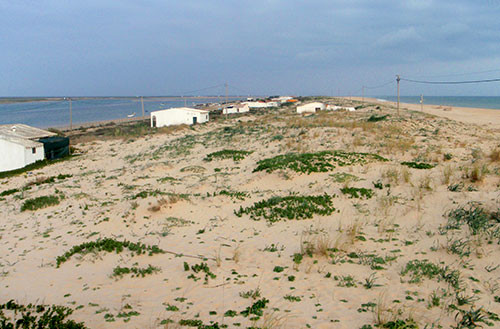
About the author
Bill Dennison

Dr. Bill Dennison is a Professor of Marine Science and Vice President for Science Application at the University of Maryland Center for Environmental Science.